Miriam Aertker: A life of humanitarian work for UNHCR's head of office in Trinidad and Tobago
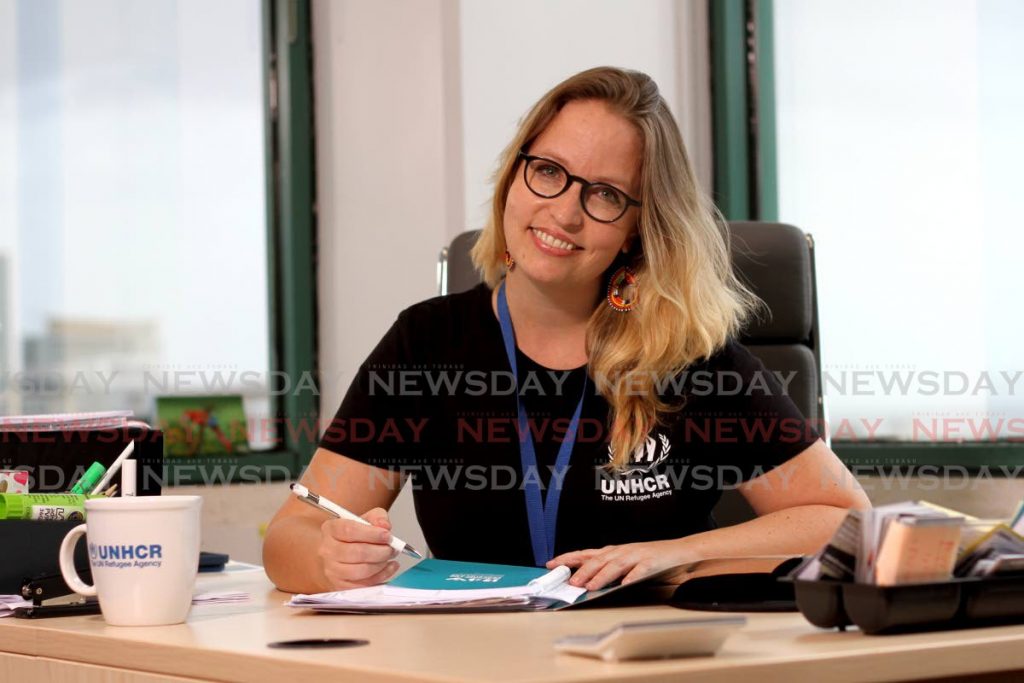
Whether she is battling the heat or cold working in a refugee camp or engaged in an international conference call in her office, head of the UNHCR National Office in TT Miriam Aertker gives her all to the humanitarian work she has chosen as a career.
For over 14 years, Aertker has served in various capacities with the UNHCR in Asia, Europe, the Middle East, Africa and the Americas. She has worked in Yemen, Pakistan, Jordan, Egypt, Iraq, Somalia, Myanmar, and Greece. In 2019 she came to TT as a senior field co-ordinator with the Response for Venezuela (R4V) platform, a co-ordinating effort jointly led by UNHCR and the International Organization for Migration (IOM).
She has worked closely with 26 refugee and migrant response plan partners across the Caribbean and with national platforms in Aruba, Curaçao, Guyana, TT and the Dominican Republic.
On June 1, she assumed her new position as head of the local UNHCR office.
“My role as head of office is to keep oversight of all operations – what we do at UNHCR and with our partners, to provide support and assist refugees and asylum seekers in TT,” Aertker told WMN.
In addition to her new duties, she will continue to oversee the R4V platform in the Caribbean together with sub-regional counterparts from IOM.
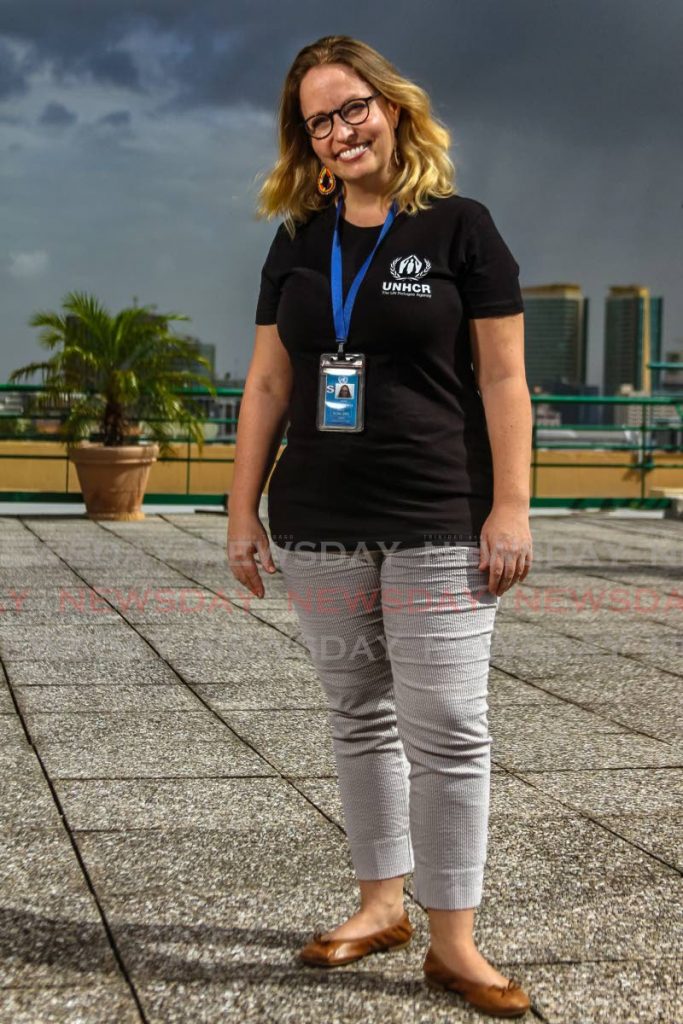
“When I first came to Trinidad it was quite an intense time,” because of the political and economic crisis that forced thousands of Venezuelans to leave their home to seek better opportunities in many Caribbean countries," Aertker said.
“We have national platforms (like R4V) in every country that co-ordinates and responds to migrant situations. You have UN agencies, NGOs, government counterparts on technical levels working together, and a lot of dialogue with the migrant communities.”
She said it is important for the UNHCR to understand what the migrants need, what assistance the governments need, and what the gaps and the resources are.
“Because there are lots of resources that are coming in. You have (migrants who are) doctors, nurses, teachers coming in and if they are properly managed it is a win/win situation for everyone.”
Aertker’s early days as a humanitarian worker was as a social worker at home in Germany.
In 2006 she moved to Cairo, Egypt to do a graduate diploma in Forced Migration and Refugee Studies at the American University in Cairo, and then to the UK to do a master’s degree in Refugee Studies from the University of East London.
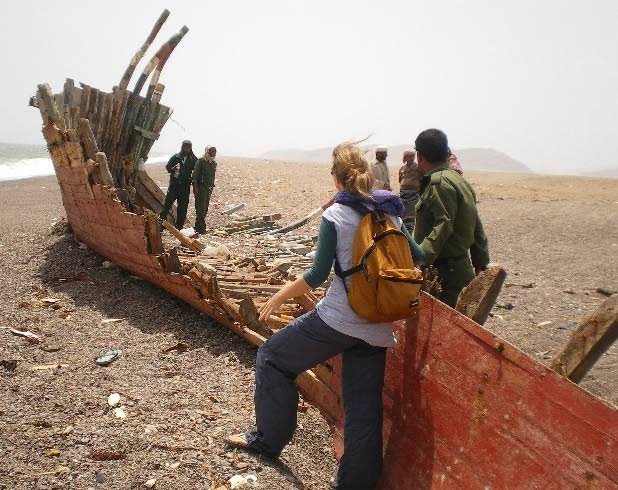
“From there I just continued to work in the humanitarian field with the UNHCR in different countries around the world,” holding positions in co-ordination, management, refugee status determination and protection.
She has seen the effects of the horrors that migrants, asylum seekers and refugees have experienced because of displacement, sexual and gender-based violence, and even genocide.
“It was so shocking!” she exclaimed.
She said the context in every country is different, which is challenging.
“You have to re-adjust continually.”
International UNHCR staff has a rotation policy, which means they can only stay in a place for four to five years. In an emergency context, they can only stay for 18 months.
“So, you continually have to re-adjust to a new team, climate, language, re-think what you learned.”
Aertker picks up bits and pieces of the language spoken wherever she is assigned, and in addition to her native German, she speaks English fluently, intermediate-level French, some Spanish, and Arabic which she learnt after spending eight years in the Middle East.
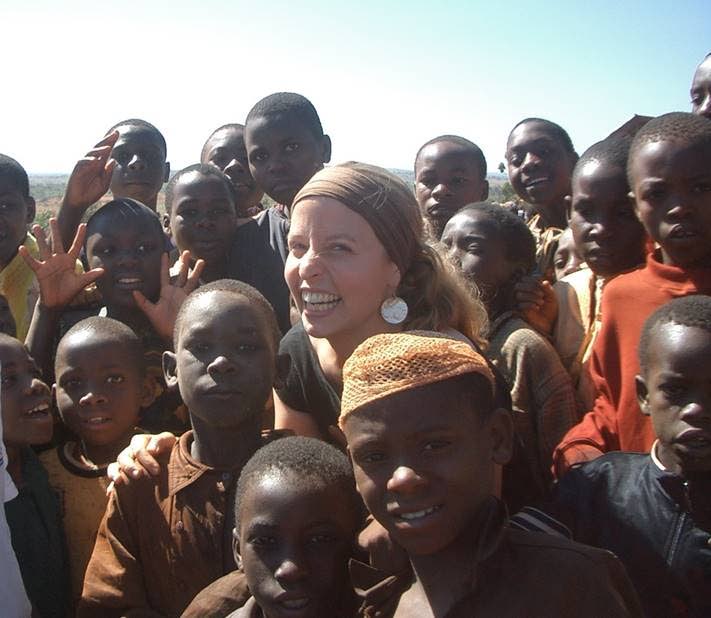
“In two more years, I think I will be fluent in the Trini dialect,” she laughed.
Her global assignments are used as a lens through which she sees the beauty of wherever she is posted. The experience of learning about and actively participating in so many different cultures, she said, is priceless.
“Iraq, Somalia, Yemen are beautiful countries, but we only hear about the negative sides… I love to travel the Caribbean, it’s such a beautiful part of this world…And I love TT, the warmth, the hospitality. I love Carnival, soca and parang and doubles. I think I can stay here forever.”
She recalled one time living in one of the remotest of areas in the world “next to a rice field in the midst of nowhere,” she said with a chuckle. But she made the best of it.
Although Aertker has done mainly field work for many years, the transition to heading the local UNHCR office was not difficult because of her sound understanding of the cross-border mobility challenges.
“Over the years I was really pushed into so many different areas – from starting off in social work in Germany to really working in the field in all different areas. My office always pushed me to so many areas – protection, legal, education, how to support people in terms of response to gender-based violence, how to negotiate better, how to work with communities around to world. This prepared me for my work here in TT. It’s not new for me to oversee operations…It was the next step for me. To pull all that I’ve learnt together.”
Her new role will involve more oversight and higher-level negotiations, dialogue and co-ordination, but Aertker believes her team is “exceptional” and, even with the added challenge of the covid19 pandemic, has what it takes to provide support and assistance to refugees, asylum seekers and other migrants.
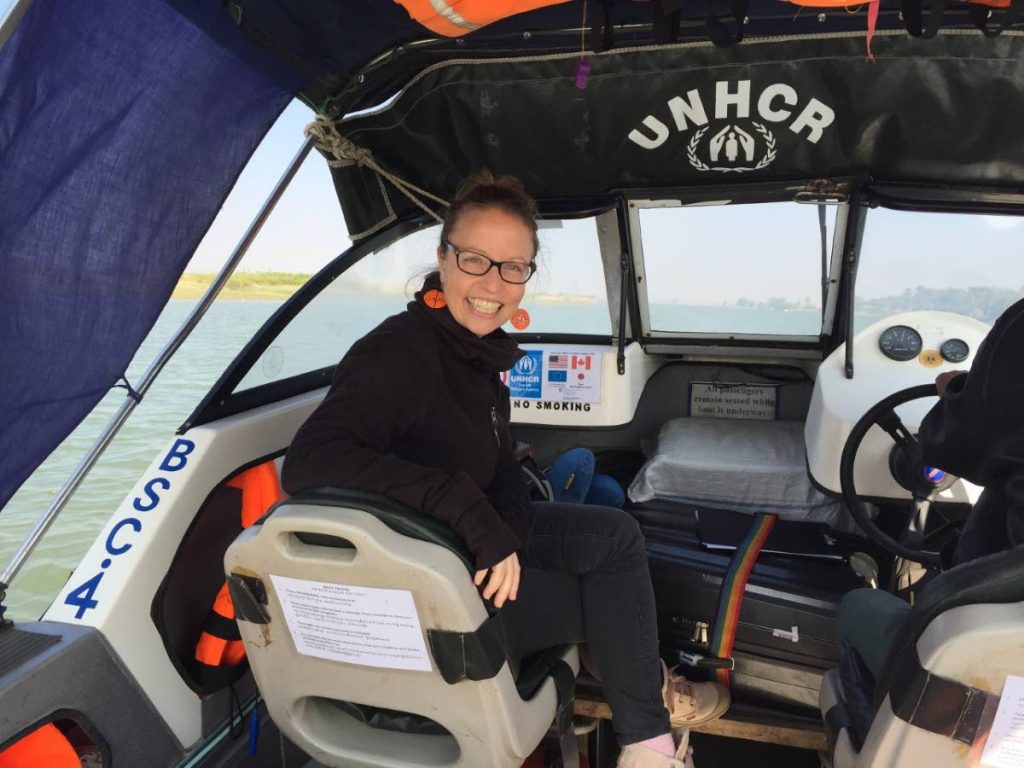
She expects that dealing with over 195,000 Venezuelan refugees and migrants in the Caribbean, with about 24,000 in TT alone, will be quite a feat, but she is up to the challenge. A registration exercise done in 2019 recorded 16,523 Venezuelans who were granted permits to work and live here legally.
“We work closely with different municipalities here and we offer support…We also work with NGOs, government agencies and civil society organisations on case management, education, legal assistance and other services…I’m so impressed by the generosity of the TT people.”
She said the pandemic has caused the organisation to have to rethink and restructure a number of things, but the overall goal is the same.
“Our aim is to support the national government wherever support is needed to develop a leader framework, and to provide technical assistance to these projects…What is the procedure when a refugee enters the country? How can we help with the regularising process? How can we help to strengthen the local community groups and help people to help themselves?”
But in as much as she is dedicated to her job, her work at the UNHCR does not define Aertker, and she is as anxious as the rest of TT for the lifting of restrictions and the reopening of the country.
“I enjoy playing my guitar in my free time. Before covid I used to love to go out – DDI (down the islands), out to dinner. I love to dance, I like to be out in nature, to go diving and snorkelling in Tobago or around the Caribbean. I’ve been a certified diver since I was 15 and I enjoy shark diving and with all those other animals,” she smiled.
In a few years Aertker’s stint in TT will come to an end, and she has a few ideas about what she’d like to do next.
“If I could choose, I would like to go back to field duty,” preferably to somewhere like Geneva where there are a lot more policies for emergency responses.
“I’m passionate about emergency responses. I’m very good at setting things up quickly.”
Or, she said, she could try working with other UN agencies, or perhaps become a university lecturer on humanitarian work.
“One of my dreams is to have some sort of refugee study centre or displacement study centre, maybe somewhere in the Caribbean where this (refugee seeking) is big right now but relatively new to the region.
"I’m quite open-minded, so wherever the road leads me, I’m actually quite flexible.”
Follow Miriam Aertker on Twitter @AertkerMiriam


Comments
"Miriam Aertker: A life of humanitarian work for UNHCR’s head of office in Trinidad and Tobago"